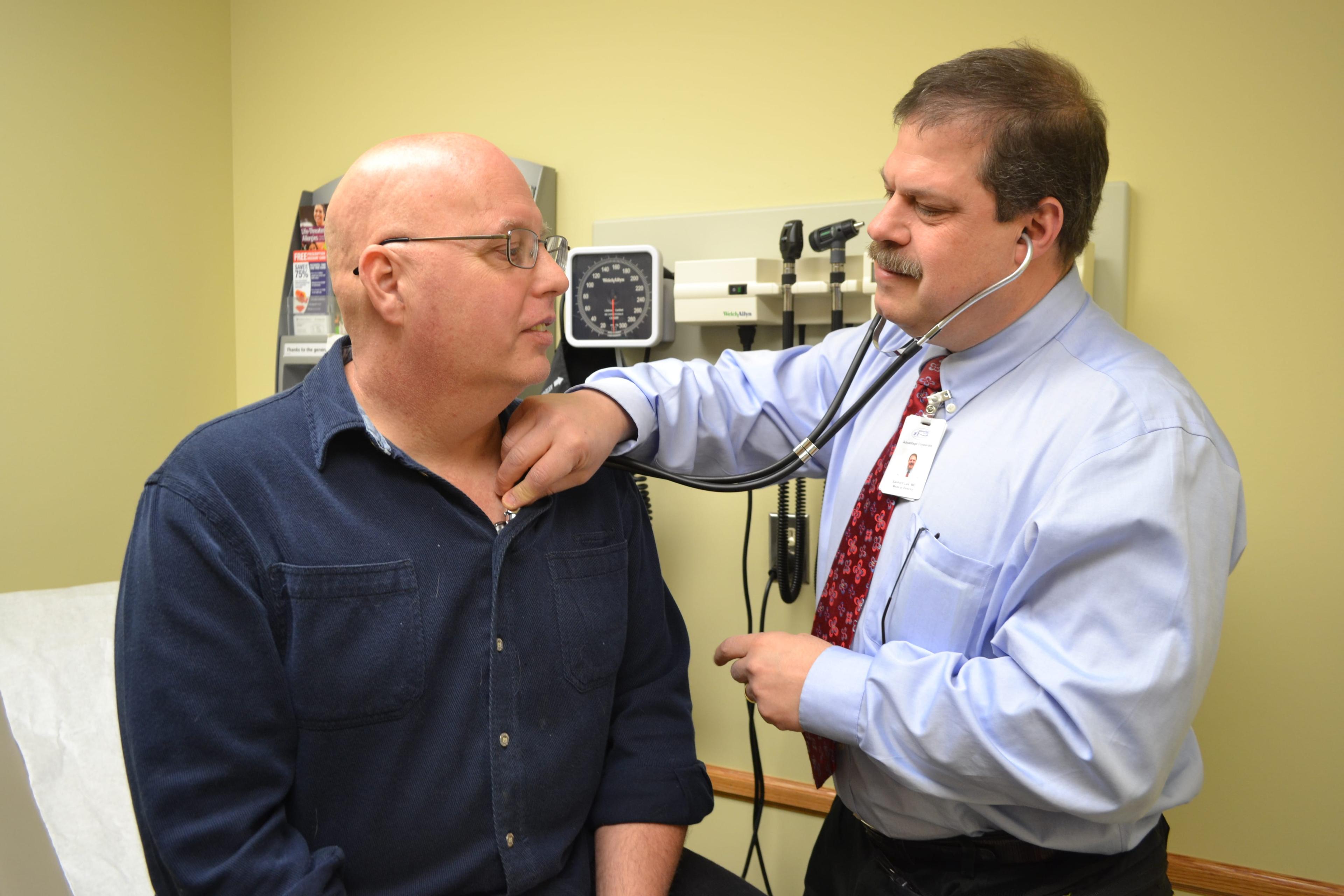
Safer, higher-quality, cost-effective health care.
Value Partnerships is a collection of clinical quality improvement programs among Blue Cross, physicians and hospitals across Michigan that make health care work better for everyone.
It is a unique, collaborative model that enables robust data collection and circulation, and fosters the sharing of best practices, so health professionals can improve patient outcomes.
It is value-based, outcomes-based health care.
It is a movement away from the fee-for-service model that pays providers for every service regardless of its effectiveness. For nearly two decades, Value Partnerships initiatives have increasingly paid health care providers for successfully managing their patients’ health through the use of value-based health care payments.
These results reduce health costs – saving $6.3 billion because repeated tests were avoided, complications and errors were reduced, ER visits and hospital stays were prevented, and care was coordinated.
Value Partnerships began in 2005 with a handful of programs focused on quality improvement in the primary care and surgical arena. Today, there are a significant number of initiatives encouraging safety, quality, population health, patient engagement and coordination of care. These initiatives exist across hospital and outpatient settings. Learn more.
See our report - Value Partnerships 20 Years

Programs
Physician Group Incentive Program (PGIP)
Launched in 2005, PGIP connects approximately 40 physician organizations (representing 20,000 physicians) statewide to collect data, share best practices and collaborate on initiatives that improve the health care system in Michigan.
Participating physician organizations are evaluated and rewarded on transformation of health care delivery, quality metric performance, and performance enablement – all designed to improve overall value of care delivered while reducing total cost of care.
Patient-Centered Medical Home
Patient-Centered Medical Home is a team-based, proactive model of efficient, cost-effective care centered around the patient. No other health plan led PCMH designation program has the size or results of the Blue Cross PCMH designation program.
Since 2009, PCMH doctors and their care teams have prevented disease, reduced hospitalizations and ER visits, tracked patient care, and better managed common and chronic medical conditions to keep patients healthy and avoid costs.
Practices that are designated as Blue Cross Blue Shield of Michigan Patient-Centered Medical Homes are also nationally designated as Total Care providers by the Blue Cross Blue Shield Association. Total Care is the nation’s largest integrated network of value‐based care providers. To find a doctor with Total Care designation use the Find Care feature on bcbsm.com or the Blue Cross app.
Provider-Delivered Care Management
More than half of PCMH-designated practices have expanded their services to provide personalized care management services for patients with chronic conditions or multiple, ongoing health needs. Patient care teams are assembled according to each patient’s needs, and may include nurses, medical assistants, nutritionists, counselors, psychologists, respiratory therapists, asthma educators, certified diabetes educators, social workers, pharmacists and community health workers. Services are coordinated with the care patients are already receiving from their doctor.
Health Information Exchange
The Health Information Exchange Initiative supports physicians and physician organizations who participate in statewide data sharing through the Michigan Health Information Network Shared Services. Participants include primary care and specialist physicians who receive daily emergency room and inpatient admission, discharge, transfer alerts and medication information for their entire patient population. This enables physicians to follow up with their patients sooner, better coordinate care transitions, and reduce duplication of medications and therapies.
Collaborative Quality Initiatives
Collaborative Quality Initiatives address many of the most common and costly areas of surgical and medical care in Michigan. In each CQI, hospitals and physicians across the state collect, share and analyze data on patient risk factors, processes of care and outcomes of care. In many CQIs, patients are part of the collaboration team, providing their perspective and input into how they want to be cared for. Physician participants incorporate this information, then design and implement changes to improve patient care.
The innovative approach has resulted in better quality and safety, improved outcomes, and approximately $4.08 billion in health costs saved statewide. For more information, go to cqis.org

Current CQIs focus on improving processes, outcomes and population-level care in the following clinical areas:
- Anesthesiology
- Back pain
- Bariatric surgery
- Blood clot prevention
- Cardiothoracic surgery
- Cardiovascular care
- Emergency medicine
- General surgery
- Health disparities
- Hospital medicine
- Knee and hip replacement
- Lung health
- Obstetrics
- Oncology
- Radiation oncology
- Spine surgery
- Suicide prevention
- Trauma care
- Type 2 diabetes
- Urology
In addition, the Michigan Value Collaborative identifies cost benchmarks for improvement in all CQIs.
Rewards
Blue Cross makes additional rewards available to physician organizations, physicians and hospitals for quality, cost and performance.
Hospital rewards include the Pay for Performance program which recognizes hospitals for improvements in quality, cost, efficiency, and population-health management.
Physician and physician organization rewards are for practice transformation efforts, clinical quality achievements and improved member outcomes.
Contact
News
- Most Blood Thinner Dosing Problems Happen After Initial Prescription - Aug 2024 - Cath Lab Digest
- Patient adverse financial outcomes before and after COVID‐19 infection - Becker - 2023 - Journal of Hospital Medicine - Wiley Online Library
- Michigan Hospital Medicine Safety Consortium | HMS (mi-hms.org)
- How Collaboration Can Drastically Improve U.S. Health Care (hbr.org)
- Enlist Medical Specialists in the Drive to Improve Population Health (hbr.org)
- Helping hearts across Michigan (michiganmedicine.org)
- Statewide quality improvement project reduced excessive radiation treatments for bone metastases by 80% (michiganmedicine.org)
- Life after COVID-19 hospitalization: Statewide study shows major lasting effects on health, work and more (umich.edu)
- Too many COVID-19 patients get unneeded “just in case” antibiotics (umich.edu)
- Helping patients prep mind and body for surgery pays off | ScienceDaily










































